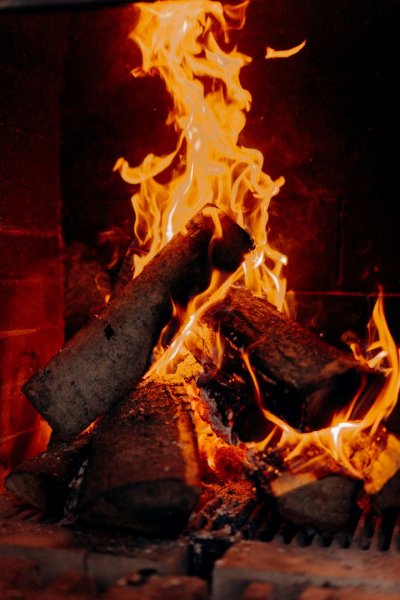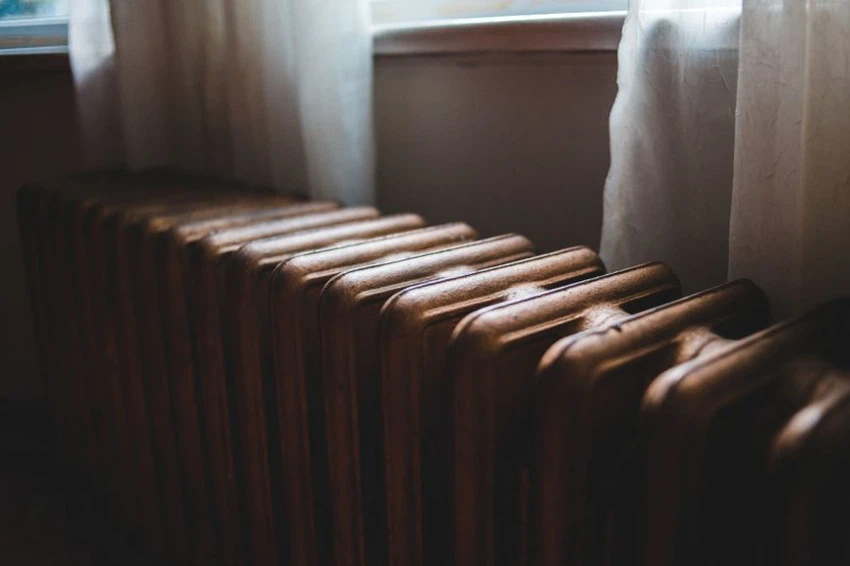How can you save money and energy during the cold winter months?
Arabia Weather - With the onset of winter, temperatures drop significantly, and energy consumption becomes necessary to maintain warmth in homes, and this is accompanied by a decrease in the need for lighting and heating, which leads to an increase in electricity consumption.
Energy costs typically increase during the winter, while electricity and gas prices remain high, which may not bode well for consumers in some countries.
Despite expectations that heating costs will continue to rise, many are still suffering from the pressure of covering energy bills, which exceed last year’s levels, and with the expected improvement in the performance of heating systems and expectations of continued cold, keeping warm this winter could be more expensive for consumers.
The actual amount you have to pay depends on how much energy is used, which means people who live in large or not energy-optimized homes may face higher bills.
These increases put pressure on families, however, there are practical strategies that can be followed to plan ahead and save energy, which will help maintain comfort and reduce costs in this expected to be a colder winter.

Tricks to save energy, money and warmth in the winter
Replace the light bulbs in your home
As winter approaches, replacing light bulbs in your home becomes a smart move to improve energy efficiency. Although some people may increase their energy consumption at this time, energy costs can be significantly reduced by replacing light bulbs with low-energy alternatives.
To reduce energy costs, it is preferable to use battery lamps or LED lamps , as these technologies are considered more energy efficient and are currently developing rapidly. LED lamps have a longer life span of up to 25 times than traditional lamps, and provide strong or even better lighting quality.
Residential LED lighting consumes at least 75% less energy than traditional light bulbs, is less of a fire hazard and less likely to overload the wall outlet.
To achieve additional savings in energy and money, it is preferable to turn off unused appliances and lighting. Lights can be turned off when leaving the room or during the day. It is preferable not to operate small electrical appliances for long periods, as they consume large amounts of energy.
Insulation to improve the energy efficiency of the home
The entry of cold winds into the house is one of the reasons that makes the house cold, and requires double heating. This situation is often attributed to poor insulation of the walls, floors, ceiling, and even the old windows. Air leakage causing cold, rain, and dust may cause many challenges, with its effects. Negative impact on energy bills and difficulty maintaining desired temperatures inside the home.
Improving insulation can be the ideal solution to reduce heat loss and prevent the entry of cold air. The British Energy Saving Trust, which is concerned with promoting energy efficiency, has shown that the cost of professional insulation of windows and doors and filling cracks in floors and side panels may be about 250 pounds, but You could save around £95 a year on your energy bills.
There are simple ways to prevent cold air flow and heat leakage, such as:
- Use sealants such as silicone to fill gaps and cracks.
- It is best to check places where air may leak, such as the basement, doors, and windows
- Moreover, heat can be preserved and costs reduced by well insulating roof walls and performing regular maintenance of heating devices.
Although expensive to repair and replace windows, plastic window sealing film can be used as a cost-effective alternative to block drafts, and weather protection tools such as insulating strips and wood door and window seals can also be used to improve insulation.
Use cold water and reduce washing costs
Hot water in the winter is a cause of high energy costs, according to Energy Gove, and it is recommended to set your water heater at a temperature of 48 degrees Celsius to reduce the cost and limit the negative skin effects of hot showers. You can also save energy by washing your clothes at lower temperatures.
By avoiding heating the water in your washing machine, you can reduce energy costs for each use, as heating water consumes about 90% of the total energy used in your washing machine, and switching to cold water can lead to reducing energy bills, and is useful in reducing gas or electricity consumption, depending on the type. Facilities used.
Modern washing machines are well equipped to handle cold water, and many detergents contain enzymes that can start working at low temperatures. Using cold water also enhances clothing care and saves time and energy associated with ironing.
Cold water is suitable for most types of clothes, and helps remove many stains, while not all stains can react with hot water effectively, and delicate and dark-colored fabrics show better performance in cold water washing, which reduces clothing shrinkage and fading.
After washing, more money can be saved through drying, as it is preferable to use a ventilator or a clothesline, and a dehumidifier can be used to speed up the process and achieve more savings compared to using a clothes dryer, as by simply combining attempts to reduce the number of weekly washing and drying cycles and reduce clothing consumption, Significant savings can be achieved in the long term.

Additional heating and energy saving tips
- Turn on the heating
Run the heating continuously at a low temperature during the day, and raise it to a medium temperature when necessary, rather than running it for long periods at a high temperature.
- Air renewal
Open all the windows of the house for a short time and change the air, without cooling the air and floors. Prolonged opening of windows can be avoided by placing them in the tilt position.
- Direct the heat towards the room being used
Heating and focusing on one room in the house instead of heating unused areas, which reduces heating costs.
- Radiator temperature control
Adjust radiator valves to reduce heat flow into unused rooms, thus saving energy costs.
- Take advantage of sunlight
Open the curtains during the day to let the sun's rays in and heat the house, and close them at night to prevent heat from escaping.
- Use the washing machine effectively
Use the washing machine when it is full to reduce water and energy consumption, and you can save more by reducing the number of times it runs.
- Close unused spaces
Close basement and spare room doors when not needed, and close grilles and vents to reduce heat costs.
- Use fans properly
Changing the movement of fan blades in the opposite direction to pull cool air upward and warm air downward.
- Fuel storage
If you use a wood-burning fireplace, consider storing wood and charcoal in the spring and summer to save on fuel costs.
- Use smart controllers
Install smart energy meters to monitor your consumption and avoid excessive costs.
- Keep active
Stay active to improve circulation and keep warm, even in the colder months.
- Use thermal curtains
Use thick thermal curtains to help retain heat inside the home.
Read also:
How do you stay warm without a heating source at home?
Sources:
Arabia Weather App
Download the app to receive weather notifications and more..



